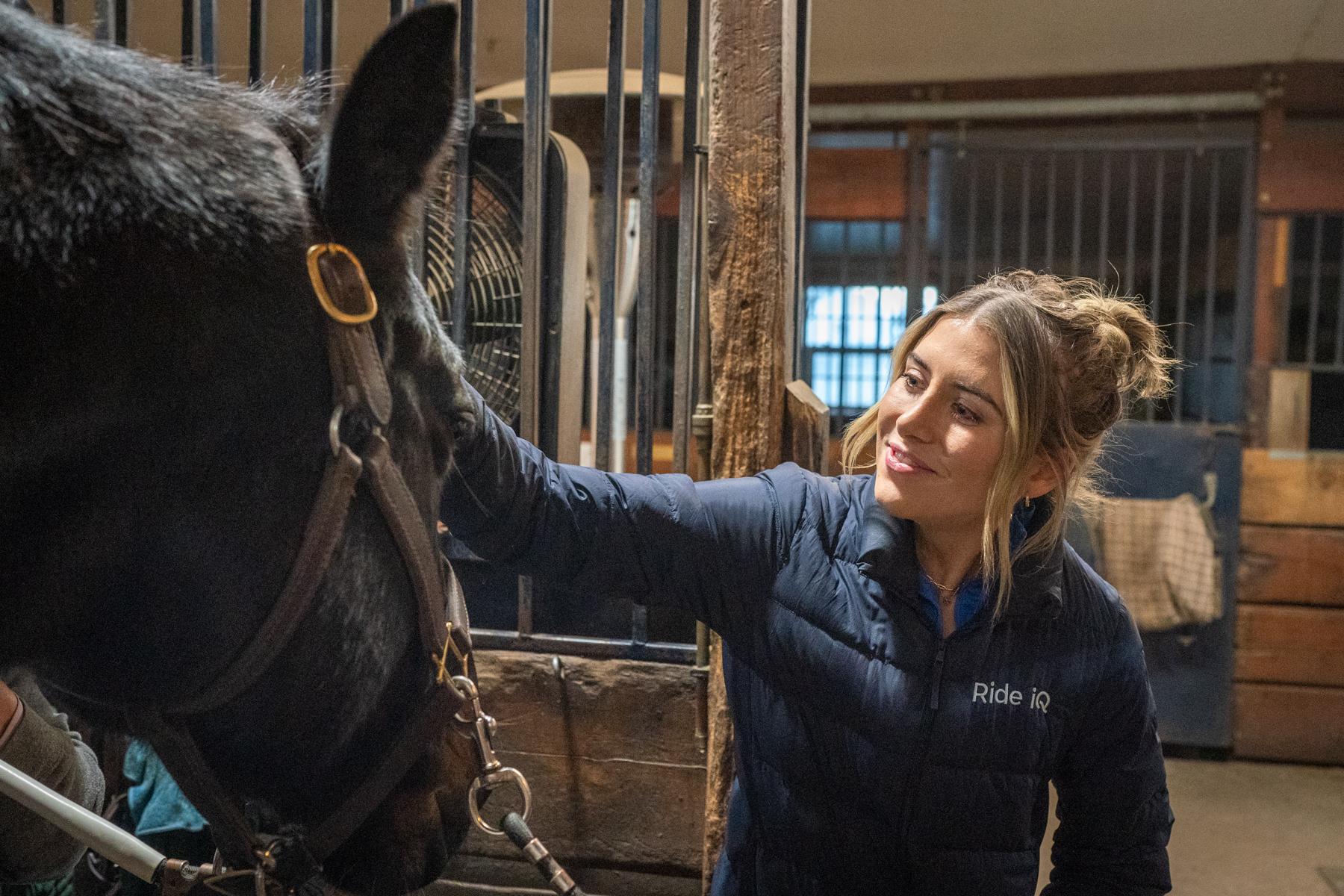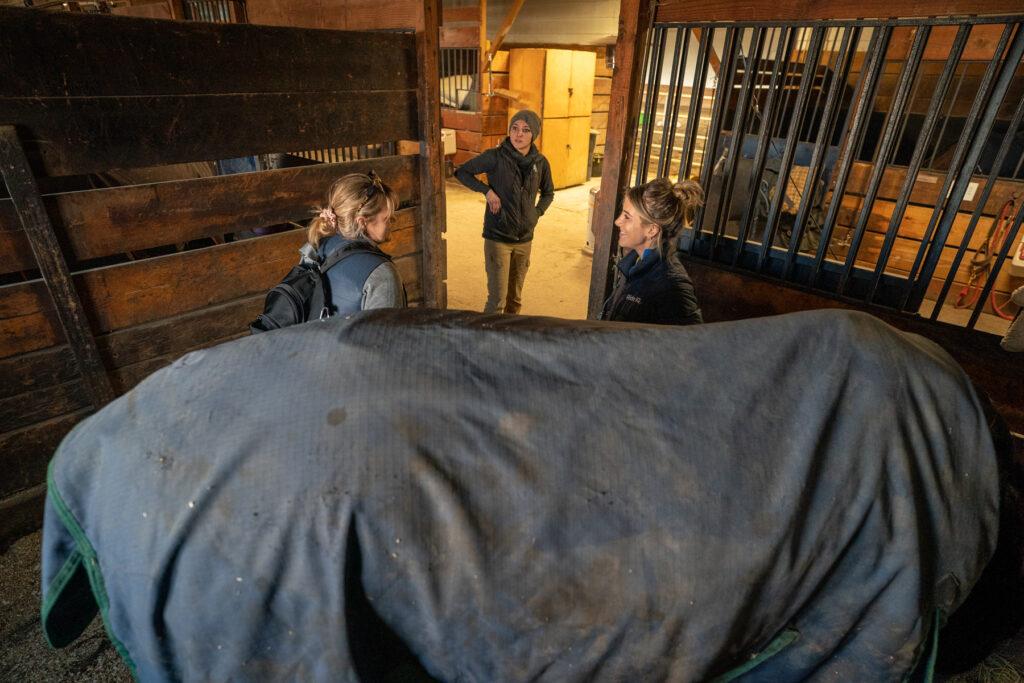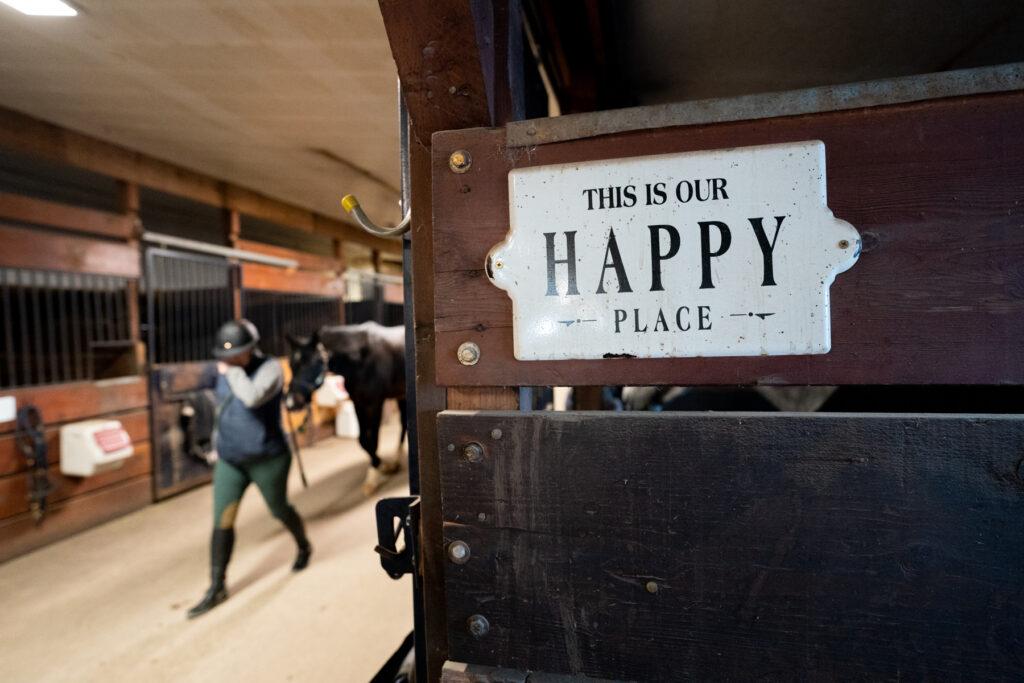
The piercing whinnies and gentle snorts of a stable full of horses don’t usually mean 21st-century innovation.
But for sisters Jessa and McKinzey Lux, horses are the backbone of their app – Ride iQ. It’s the coaching app for equestrians that won the top prize at Denver Startup Week’s annual pitch competition last year. Now, the Lux sisters are in the current class of the Techstars Boulder Accelerator, a three-month program for startups to get off the ground that was started in 2007 by a group of local entrepreneurs, including now Gov. Jared Polis.
The Ride iQ app works by allowing horseback riders to download lessons from top trainers to guide them through tips and exercises while they’re riding. It helps riders learn and hone their skills when there’s no trainer available to teach them in person.
“The nature of being an equestrian is that you’re riding on your own quite a bit,” Jessa said during a recent interview at a barn just west of Denver.
She was there to meet Ride iQ member Katie Cordes, who was getting her horse, Adonis, ready for a ride. Cordes described the app as Peloton, but for horses.
“I have a favorite coach in there that I like his style and how he talks … I’ve had a ton of success with it,” said Cordes, who started using the app about six months ago when her regular trainer was away.
Both the Lux sisters were serious equestrians growing up, though until recently, their adult career paths had nothing to do with horses. Prior to launching the app, Jessa was working at a digital design agency. Her sister had a job at a major financial firm in New York.
“The circumstances just felt perfect for Kinzey and I to explore doing something together. She was at a point that she was ready to start doing that exploring, and I'm always ready to do that exploring,” Jessa said. “We knew that we wanted to innovate within the equestrian space because we love horses.”
Equestrian sports is a pretty niche interest. But even so, the Lux sisters’ story has an element that a lot of people can identify with: the way the stresses of the pandemic changed the way some people relate to their jobs.


In a phone call with the sisters after the barn visit, McKinzey talked about her decision to walk away from a lucrative career on Wall Street.
“It was incredibly hectic during 2020 … Those were really long days, and it wasn't even the amount of work, it was just the stress of it … It was a very high-stress year for, I think, everyone,” McKinzey said. “In the finance world, everything felt like it was imploding.”
McKinzey looked around and realized she didn’t want the rest of her life to be in finance. That’s when she started to think about what to do next. The idea for Ride iQ crystallized during a discussion she and Jessa were having during a family dinner at their parents’ house in Colorado over Christmas break.
“By the end of the dinner I was like, okay, I'm doing it. I'm leaving my job. And then I did, and [Jessa] was like, ‘Oh my God, OK, we're doing this,’” McKinzey said.
McKinzey quit her job in January 2021. Jessa left her job a few months later. They used savings from McKinzey’s time on Wall Street to start Ride iQ. The first step was calling their old coaches from their riding days. From there, they kept hitting the phones.
“Each of those five people we spoke to, we asked if they could connect us with another person or two so we could just talk to as many equestrians as we could,” Jessa said.
Their days have gotten a lot busier since they started the Boulder Techstars program. Their calendars are filled with back-to-back meetings to check in with customers and coaches. They also spend a lot of time meeting with mentors, a key component in making the program worthwhile.
Another crucial part: being accountable for meeting measurable goals.
“You set your goal publicly each week and then you report publicly whether you hit your previous goal and if you didn't, you have to tell them why you didn't hit the goal,” Jessa said.
One of the hurdles the sisters ran into was how to drum up interest in the app in people who don’t ride horses – like most potential investors, for instance.
“Whenever we dove right into this … without first giving them that kind of emotional background story, it was really hard for people not to kind of check out because they don't know anything about equestrians,” McKinsey said.
They hit on the idea of equating riding maneuvers to an activity almost everybody can understand – somersaults. The pitch is that the app is akin to teaching yourself to do a flip if you already know how to do a somersault. The analogy resonated with at least one investor. Ride iQ collected its first check from an outside backer last month.
When it comes to attracting customers, it’s mostly been through word of mouth. Currently, Ride iQ has 1,400 members around the globe.
“People are so unbelievably passionate about their riding pursuits that as soon as they find a tool that supports them … they become wild about it. I think we just really got fortunate on hitting that funny bone for people,” McKinzey said.








